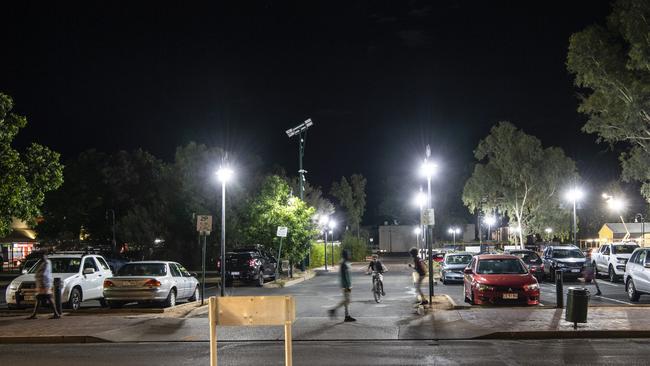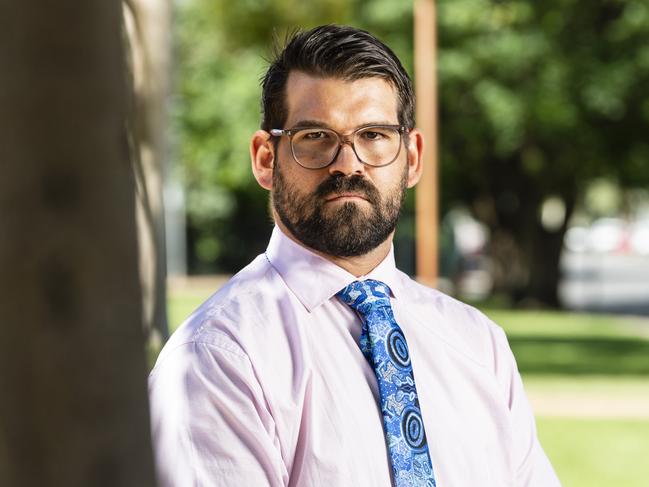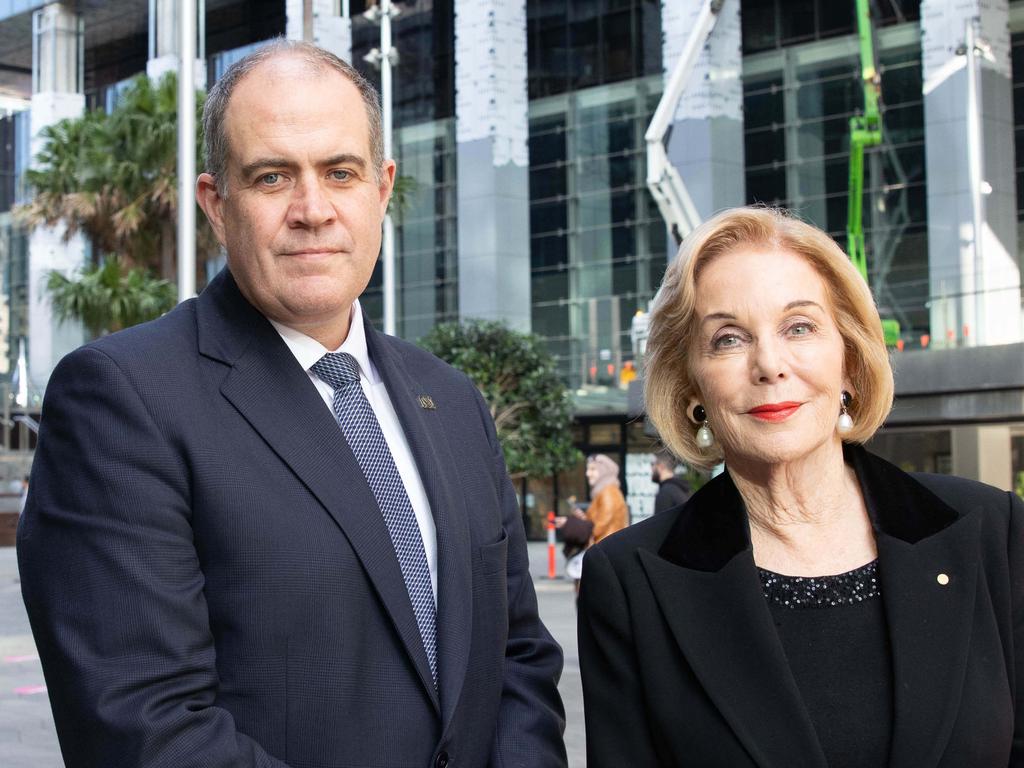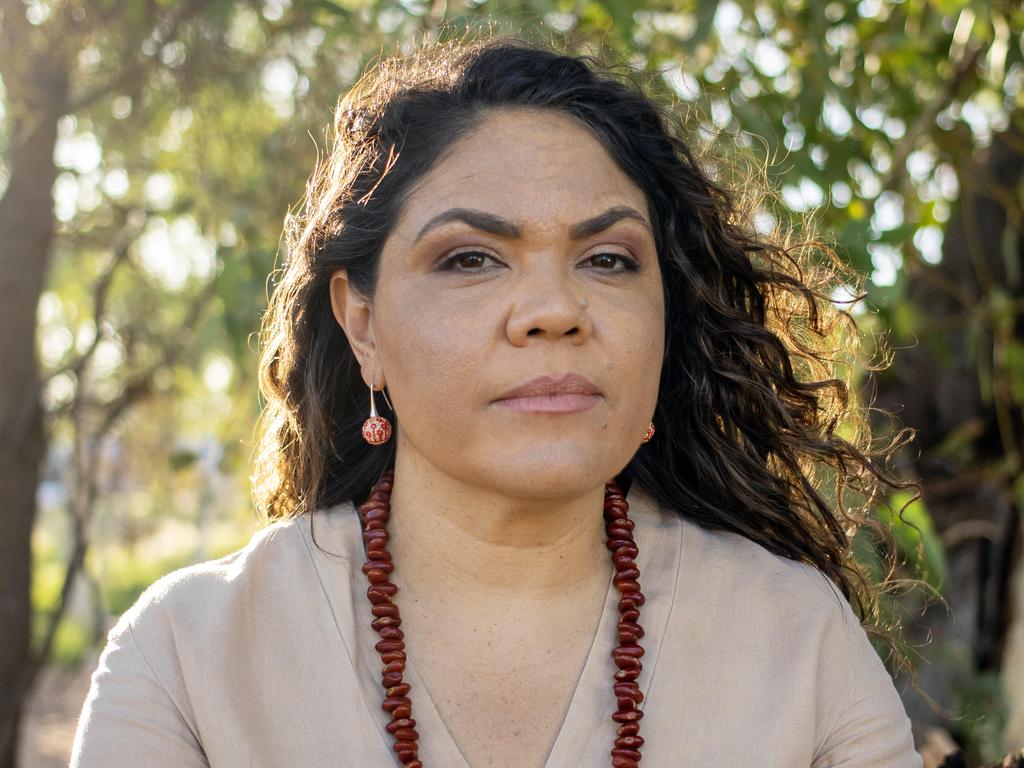Dearth of political diversity exposes ABC echo chamber
The dangers of the everyone-agrees-with-everyone-else ethos at the public broadcaster was exposed with the reporting of a meeting of Alice Springs locals as a ‘white supremacist’ get-together.

Many journalists, who dish out criticism of others, are oh-so-sensitive when on the receiving end. Such individuals thrive within the taxpayer-funded public broadcaster where bureaucratic structures have been established to protect them from the views of outsiders.
The ABC TV Media Watch program, presented by Paul Barry, specialises in fanging Sky News After Dark (as it is called by some) along with News Corp publications. It rarely takes on the ABC itself – but, when it does, it invariably causes resentment within sections of the organisation.
It is notable that, last Monday, Barry criticised the ABC’s coverage of the recent civil disobedience and incidents of crime in Alice Springs – sparked by, among other factors, the recent abandonment of long-established restrictions on alcohol consumption in parts of the Northern Territory.
There was considerable criticism, led by Alice Springs Mayor Matt Paterson, of the fact the ABC had presented a meeting of some 3000 locals to protest about the prevailing violence – affecting Indigenous and non-Indigenous alike – as some kind of white supremacist get-together.
The focus was on the initial report of this meeting by Carly Williams – the ABC’s Sydney-based Indigenous Affairs reporter who was visiting Alice Springs – which aired on Tuesday, January 31. Immediately, the ABC’s defence mechanisms were activated.

The next day, Sally Jackson – on behalf of ABC Communications – issued a defensive response in a statement on the not easily accessible Corrections & Clarifications page on the ABC website. It stated: “The ABC had reporters and crew inside and outside the community forum at the Alice Springs Convention Centre on Monday. One report included interviews with attendees as they left the meeting. Their comments were accurately quoted.”
Well, so they were. What Jackson failed to mention was that the ABC had accurately quoted the views of two critics of the meeting – both of whom ran the “white supremacy” line. No other opinion was heard.
Needless to say, there was pushback from beyond Alice Springs. Including from Sarah Henderson, the opposition’s shadow minister for communications. After raising the issue on February 3, she wrote to ABC managing director and editor-in-chief David Anderson two days later. Henderson advised him that she would ask the Australian Communications and Media Authority to use its discretionary power to investigate whether the public broadcaster had breached the ABC Code of Practice.
This was a clever move since it involved bypassing the ABC’s self-serving in-house complaints bureaucracy. In any event, late on February 3 (no doubt in anticipation of Henderson’s formal action), Jackson put out another statement. It included these words: “The views of those interviewed who had attended the meeting were accurately reported … However, we acknowledge that one report on AM was incomplete, and did not adequately cover the full context of the meeting or the range of perspectives expressed at it.”
There followed an apology for “providing an incomplete picture of the event in this instance”. This was a rare apology, of sorts, from the ABC. For the fact is that the AM report was not just incomplete – it was totally inaccurate and misleading. Yet it passed through all ABC editorial controls before going to air.
Barry recognised this last Monday when he said no attempt had been made “to explain what the meeting was all about or canvass the views of the majority”. He concluded that the story “should never have been put to air”.
But it was. Why? Well, the obvious answer is that the ABC is a conservative-free zone without one conservative presenter, producer or editor for any of its prominent television, radio or online outlets. In an organisation obsessed with identity and gender issues, it’s fashionable to seek out and attack (alleged) male white supremacists – even to the extent of beating up the issue. When views are not contested within a media institution, it’s hardly surprising that journalists can come to the opinion there is just one valid position.
It was only after the High Court quashed the convictions of the late Cardinal George Pell in a unanimous decision that well-known ABC journalist Noel Debien admitted he had regarded himself as a “pariah” within the public broadcaster – for merely failing to join in the chorus that Pell was guilty. That’s why so many ABC journalists were hopelessly wrong on the Pell case. It was simply assumed he was guilty.
Move along to the proposed voice to parliament – supported by such Indigenous Australians as Linda Burney and opposed by such Indigenous Australians as Jacinta Nampijinpa Price. Sky News opinion program presenters are generally critical of the proposal – for example, Andrew Bolt and Peta Credlin among others. But the likes of presenter Chris Kenny and high-profile Sky contributor Joe Hildebrand support the voice becoming part of the Constitution.
There is no such diversity at the ABC. I cannot think of one prominent ABC presenter or high-profile and regular contributor who opposes the voice. It is the absence of a contest of ideas – even in private – that contributes to the kind of reporting that prevailed with respect to the (alleged) existence of white supremacists in Alice Springs. Such reporting is counter-productive to the cause of the voice.
The everyone-agrees-with-everyone-else” ethos that pervades the public broadcaster is also evident in the outside talent invited into ABC studios. Take ABC Radio National Breakfast presented by Patricia Karvelas. There appears to be a weekly politics commentary spot for someone from the avowedly leftist Guardian Australia. No conservative commentator has such a one-to-one position.
Then there is ABC TV’s News Breakfast. Its newspapers commentary section regularly hears from left-wing academics along with those employed by such left-wing entities as Guardian Australia and the Australia Institute. Conservative views are rarely, if ever, heard in such slots.
Since there is a lack of diverse views at the ABC, it’s not surprising the organisation takes scant notice of criticism. Except when, every now and then, there is a substantial pushback. The Alice Springs report controversy was one such welcome instance.
Gerard Henderson is executive director of the Sydney Institute.







The ABC has a communications department that frequently fails to communicate. Along with a complaints outfit that rejects the overwhelming majority of complaints received.